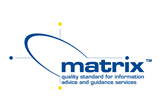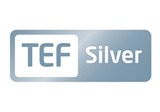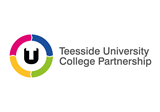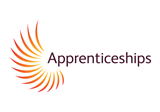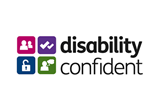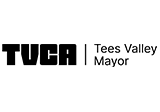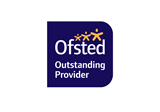So, you might have heard about T Levels, the government’s new level 3 post-16 qualification being rolled out at colleges across the country.
Offering an alternate study path for school leavers, they will offer a technical route that incorporates classroom-based learning with a strong focus on a sector specific occupational specialism and a significant industry placement.
Not sure what it means for you, or your son or daughter? Our Group Vice Principal for Business Innovation and Partnerships, Gary Potts, offers a guide…
What are T Levels?
T Levels are a new two-year course, being introduced by the government, primarily aimed at 16 to 19-year-old learners. The equivalent to three A levels, they are a level 3 technical option that combines classroom-based learning with a strong element of on-the-job training through a 45-day industry placement.
T Levels have been developed in select subject areas, alongside employers and businesses to ensure they meet industry needs. The courses are being rolled out gradually to colleges and providers.
The qualification is made up of...
Technical Qualification:
Core content (knowledge and skills relevant to all occupations covered by the T-Level)
An occupational specialism (the knowledge and practical skills to enter employment in a particular occupation)
Industry placement:
Every T-level will include an industry placement with an employer, which will last a minimum of 315 hours (approximately 45 days) but can be longer.
When will they be available at Stockton Riverside College?
As a part of the Education Training Collective, Stockton Riverside College will start to offer T Levels from September 2022 in subject areas including Construction and Education.
What happens in the meantime?
There’s no need to worry, the college will continue to offer its full range of vocational courses starting this September. Haven’t applied yet? There’s still time to apply.
What is the difference between a T Level and a level 3 vocational course?
T Levels are the technical equivalent to three A levels. They will cover core theory, concepts and specialist skills and knowledge for a specific career or occupation. The main difference between the T Level and a level 3 course is the compulsory industry placement. This will last a minimum of 315 hours and makes up 20% of the course. Academically demanding, T Levels incorporate English, maths and digital content.
What is the difference between a T Level and an apprenticeship?
Apprenticeships are built for those who know what occupation they want to pursue and are ready to enter the world of work. They are typically made up of a combination of 80% on-the-job training and 20% in the classroom. T-levels have been developed in collaboration with employers and providers so that the content “meets the needs of industry and prepares students for work”. T Levels are based on the same industrial standards as apprenticeships, created specifically by employers and approved by the Institute for Apprenticeships and Technical Education. On a T Level you will spend 80% of your time in the classroom and 20% on a placement.
Will they be recognised by employers?
Yes. Leading industry employers are involved in developing these qualifications, to ensure students develop the skills that employers are looking for.
Will a T Level give me enough UCAS points to get into university?
Yes. T Level qualifications carry UCAS tariff points. A T Level is worth the same number of UCAS points as three A levels. UCAS points will be allocated according to your overall grade. T Level students can progress to higher education, employment or an apprenticeship.
|
UCAS tariff points |
T Level overall grade |
A level |
|
168 |
Distinction* (A* on the core and distinction in the occupational specialism) |
AAA* |
|
144 |
Distinction |
AAA |
|
120 |
Merit |
BBB |
|
96 |
Pass (C or above on the core) |
CCC |
|
72 |
Pass (D or E on the core) |
DDD |
How does the T Level grading system work?
Students will receive an overall grade of pass, merit, distinction or distinction*. The T Level certificate will also show a separate grade for the core component, A* to E, and a grade for the occupational specialism of pass, merit or distinction. It will also show that the student has met the minimum requirements for maths and English and has completed the industry placement, plus any additional essential requirements.
What are the entry requirements for a T Level?
Entry requirements will vary depending on the course, however as T Levels are the equivalent to A levels, good GCSE results will be essential, including English and maths.
What are my options if I don’t achieve the minimum entry requirements?
Transition Programmes will be available for a number of T level pathways which will be designed to help an individual develop and achieve entry level requirements for T Levels over a year. The transition programmes will potentially include elements such as vocational qualifications, work experience/visits and master classes and English and maths but will be designed specifically around moving onto a T Level in a particular sector. It will effectively mean your T Level becomes a three-year programme, from start to finish.
Do I have to find my own industry placement?
We do encourage all students to be pro-active and ‘self-find’ their placements. It should be treated in the same way as finding a job with an employer, i.e. research appropriate employers in the sector, do your preparation and find out as much as you can about them and then contact them to discuss why you would be a great asset for them as a work placement. Where somebody can’t ‘self-find’ a placement, the College will help to match you with a relevant industry placement and have a team who will support every step of the way.
Will I get paid for my industry placement?
No, you will not be paid for you industrial placement as part of the programme.
Will all level 3 vocational courses eventually be replaced with T Levels?
No, the government are currently looking at all options at level 3 and some of the choices will be removed (if they directly clash with a T Level) but there will definitely still be A Levels and other vocational options available moving forward. The T Level will be a flagship programme for vocational/technical learners at level 3, as we move forward, due to the links with employers which ensure that the learner completes the programme with the knowledge, skills and behaviours that they would expect in those occupations.
To find out more about T Levels visit: T Levels | The Next Level Qualification








